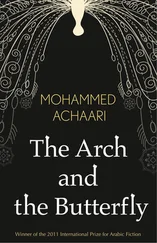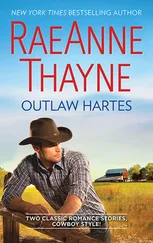The orchestra grouped itself in a cramped semicircle around my chair and finished the trumpet tune with flourishes. “We missed you,” the leader said. Then the orchestra plunged into Bach’s first Brandenburg Concerto.
Joe, disheveled and flamboyantly annoyed, shoved past the trumpets, yelling, “Get these people outta here!”
“Something wrong?” in Michael’s blandest tones.
“I ain’t got no license for no band,” Joe yelled. He was verging on hysteria. “An’ I can’t have all them people in here. It’s illegal.” His swarthy face was turning an unappealing purple. “An’ they all gotta order. Jesus Christ!” He turned and drove back through the orchestra, rending his garments melodramatically as he drove.
“Excitable type, that Joseph,” I murmured.
“Lousy insurance risk,” said Mike. Then Joe screamed magnificently treble in the near distance.
“Yoo-hoo!” somebody yelled. “Michael!”
“Oh?” we said.
“Michael!” someone yelled again. We could feel lines of panic form in the mob like lines of force around a magnet, and when Michael’s gods tore through my orchestra (putting that bassoonist out of business for a while), we weren’t at all surprised.
“Hey, boss,” Chuck said, “we finished Eighth Street.”
“I don’t doubt it.”
“Eek,” said a number of people tritely as Mick deftly dealt with them.
“What next?” asked Chuck.
“Hey! Help!” from Joe, who was completely surrounded by Fellatia.
“Zap!” from Zap.
“WoW,” from everybody else. All males present clutched their groins convulsively. Mike and I seemed to be immune.
“Yoo-hoo!” That was Phlipout and his sister. Behind them untold crockery broke noisily.
“Have you tried Washington Square?” Mike was being businesslike.
“Got it on the way back.”
The confusion was spreading to the orchestra. This dragged me. I like the first Brandenburg.
“Yow Yow Yow Yow YOW!” Joe yelped all the way back to the cash register.
Mick was surrounded by a squirming pile of shameless female teenyboppers, plus a few shameless males I’d never suspected before. There seemed to be enough of Mick to go around.
“What about Sheridan Square?” Mike asked.
“Where’s that?”
“West of here.”
The noise was impressive and growing. It was almost too loud to hear, and the walls were shaking like drumheads. All the gods were working overtime, the orchestra was doing its high baroque best, and Mike and Chuck were planning strategy. No good, I decided, could possibly come of this.
I was right.
“All right, all right,” said a bullish voice. “Move along.” The law had arrived, lots of it. At least a dozen irate fuzz in riot helmets beat a path through the melee, past our table, to the rear of the room. Hippies and other innocents, forgetting gods and chaos, ran shrieking to the front and out, overpanicked by the presence of police. I was getting sick of all that noise.
“Shall I?” Chuck suggested.
“Forget it,” Mike explained.
“This is all your fault,” I told Mike.
“Eh.” He shrugged.
“All right, all right,” said the cops. They had portable loudspeakers. “Everybody out. Come on, now. Move.”
Everybody turned out by then to be the gods, the orchestra, Mike and, irritated, I; not quite seventy-five people, so to speak. We moved.
Outside we were herded into green buses with barred windows.
“Are we under arrest?” Mike blandly asked a cop.
“Move on there,” he explained. We moved.
Thanks to the pill, I was simultaneously euphoric and enraged. Arrested, by God! And it was all Michael’s fault.
Despite Mike’s efforts to engage me in light banter, I preserved a fairly stony silence all the way to the Charles Street precinct house. There we were herded out of the buses and into the station like so many oddly dressed cattle, the orchestra going fairly quietly, the gods giving everyone their usual hard time, Mike and I pretending to be meek and somewhat invisible. Inside, the orchestra began the Bach again, the gods flew madly about spreading disorder, and we took up inconspicuous positions at the rear of it all.
We were in a large, high-ceilinged, dingy room, poorly lighted, with fly-and spit-specked dirty marble floor and grimy plaster walls, drab green, that echoed without mercy. At the far end of the room, at the foot of a rusty flight of wrought-iron stairs, half a dozen plainclothesmen tried to look unalarmed, with indifferent success.
A uniformed elderly cop with lots of gold braid, sitting at a brightly lighted, battered oak desk at the east side of the room, looked threatened. Fellatia was crawling gracelessly over the desk toward him, despite the efforts of two burly patrolmen to restrain her.
“What’s goin’ on here?” the man at the desk wanted to know.
“It’s like this, Sarge,” said a cop, launching into a highly colored report of the events at The Garden of Eden. Words like riot, indecent exposure, disorderly conduct, vagrancy, resisting arrest, attempted bribery, felonious assault, and disturbing the peace ran through his monologue like a wearisome refrain.
Michael looked elaborately unconcerned. I worried.
“Oh yeah?” the sergeant said when the cop had finished his gory report.
“Yeah,” the cop insisted.
“Lemme go, you great big handsome brutes,” Fellatia told the two cops who were holding her.
“I better call Centre Street,” the sergeant said. He did so. Meanwhile, Mick, Toke, Chuck, and the twins were sneaking up the stairs, apparently unnoticed by the huddled plainclothesmen.
“Chuck’s clever,” Mike said admiringly.
“Hmph,” I said.
The sergeant hung up. “They’re sending over a Special Investigator,” he said, visibly impressed. “Now,” collecting himself, “who’s in charge here?”
“I am,” said the leader of my orchestra. I softly groaned.
“Oh, you are, eh?” the sergeant sneered. He opened a large notebook and uncapped a fountain pen. “An’ what’s your name, buddy?”
“Begging your pardon, sir,” the leader said in calm, reasonable tones, “but, a name being clearly unessential to my function, I wasn’t given one.”
“No name?” The sergeant was upset. “What’re you tryin’ ta pull?”
“Pull? Nothing, sir. I don’t pull anything at all. I merely play the violin. “The sackbutt players, now…”
“Ahr, a wise guy, huh?”
Just then there was a loud disturbance upstairs. Mike chuckled. We heard loud, metallic hangings, drunken yowls, and the sound of many heavy feet. Then an extra motley crowd poured, shuffled, stumbled, and staggered down the wrought-iron stairs, ridden herd upon by Mick, Chuck, Toke, and the twins, who were followed in turn by a brace of cops yelling, “Come back here,” and, “You can’t get away with this.”
The gods had been freeing prisoners.
“What the hell is all this!” The sergeant was becoming hoarse.
Half the prisoners were women of one sort or another. As soon as they reached the main floor, they forgot about escape and started reacting to Mick. Mick encouraged them. While the sergeant stared in speechless horror, a medium-sized orgy took shape in front of his desk.
“Whoopee!” yelped Fellatia. She broke free of her guards and started toward the sergeant, clearly bent on some unwholesome and unnatural variety of rape.
The sergeant yelled and stumbled backward. Fellatia charged. He picked up a chair and held her at bay, almost, but she had longer arms than he’d counted on.
Several cops tried to rescue the sergeant, only to be trapped in the growing orgy around Mick.
Mike fell laughing to the floor. I tried to kick him and missed. Somebody started shooting in the air, and chips of plaster from the ceiling floated down like pregnant snowflakes.
Читать дальше











